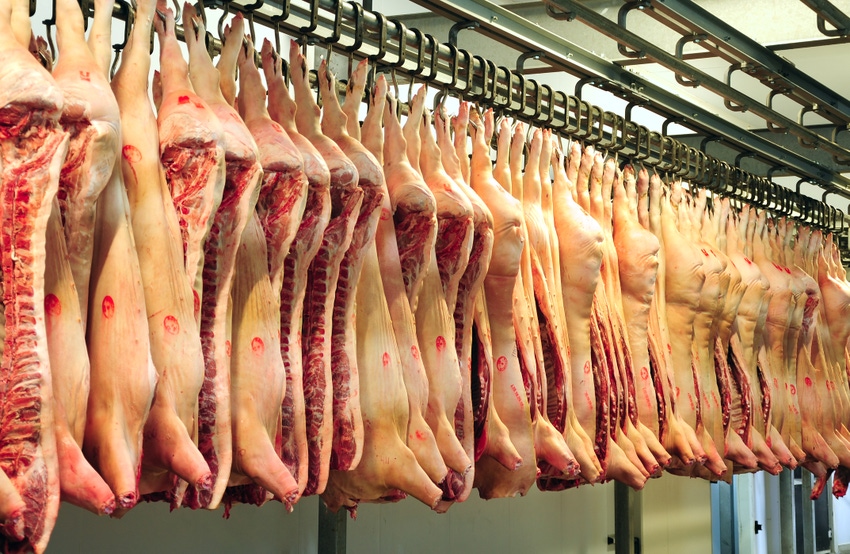Science-based system helps producers capture added value from objectively sorting cattle.
August 23, 2021

Nearly empty meat aisles are a burden producers, processors and consumers don’t want to face again. To prevent that, the Missouri Department of Agriculture (MDA) recently awarded $16.7 million to keep 150 meat and poultry processors throughout Missouri going strong.
“Our local meat processors were the backbone of our food supply chain during the COVID-19 pandemic,” said Missouri Director of Agriculture Chris Chinn. “Last year, our team doubled the amount of red meat under state inspection, so we know the demand is there.”
The Missouri Meat and Poultry Processing Grant helped bring 27 businesses into state-inspection status. It also aided 55 federally inspected facilities and 59 custom-exempt operations, where customers can have their livestock processed for personal consumption. In addition, the Missouri General Assembly appropriated $20 million from the Coronavirus Aid, Relief and Economic Security Act in 2020 to make sure small processing plants can sustain operations as the pandemic continues.
“Processors who received federal funding are using this opportunity to expand their facilities, upgrade their equipment and address some of the industry’s chronic workforce challenges,” said Mallory Rahe, University of Missouri Extension agriculture business and policy education director.
Rahe helps lead the Missouri Small Business Development Center (SBDC) for Agriculture, Food and Forestry, a partnership of MU Extension’s business development and agriculture/environment programs. She created a rapid-response team to educate processors about the funding opportunity.
County engagement specialist and Missouri SBDC business counselor Jennifer Lutes, who heads the effort to improve Missouri’s meat processing industry within the new center, said the pandemic revealed the importance of local processors.
“When large processors across the country had to shut down, small processors were inundated with processing requests,” Lutes said. “Most of Missouri’s small processors are booked for the next two years. This past fall, processing appointments were all filled even though many doubled their processing capacity during the previous few months.”
The team compiled a list of Missouri’s small processors in order to notify them about the grant, she said. The list comprised state-inspected plants, USDA-inspected plants and custom-exempt plants. Once the team had the processors all mapped out, they started calling them one by one to offer assistance.
“For processors who have never filled out a grant, it can be quite a daunting process,” Lutes said.
Lutes and fellow SBDC agricultural business counselors and MU Extension specialists Mallory Rahe, Amie Breshears, Rachel Hopkins, Ryan Milhollin, Eric Meusch and Kyle Whittaker helped processors work through the grant requirements.
“Our team members built relationships with many small meat processors to help them navigate the grant process,” said Whittaker. “Most meat processors were experiencing an unprecedented amount of business and lacked the time to complete many of the grant details.”
One hurdle meat processors faced when opting to move from custom-exempt to state-inspected with the grant was preparing a Hazard Analysis Critical Control Points (HACCP) plan for approval by the MDA, Whittaker said.
“Kyle helped us the entire way,” said Chet Bailey, of Chet and Bill’s Processing in Marshfield. “He first just let us know the grant was available. Secondly, he helped us fill out the application, all the way from becoming state-inspected to helping write our HACCP food safety plan, which is a huge deal due to it being very time-consuming. Kyle went through all the steps of the grant with us, and he even came out when the inspector was here to see how the flow of the HACCP went.”
Under the partnership, MU Extension’s agriculture-focused specialists are also working as Missouri SBDC business counselors within the state’s broader SBDC network and specifically as part of the Missouri SBDC for Agriculture, Food and Forestry. Extension specialists were a natural fit to expand Missouri SBDC services through their knowledge, experience and community relationships, Rahe said. The roles with the SBDC allow the team to better assist livestock, commercial horticulture and crop producers as well as food processors and forest product manufacturers.
You May Also Like



